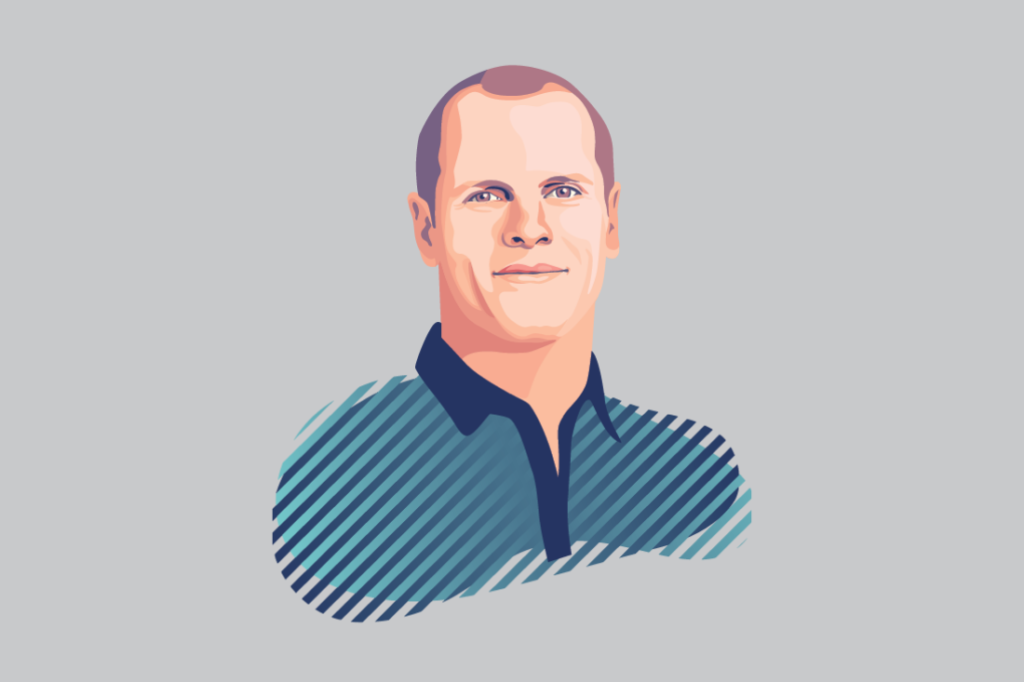For a guy who has built a career on change and adaptation, Tim Ferriss has found a semblance of consistency in his last few years. Though he’s still constantly working on new skills, picking up new hobbies, and teaching new techniques, he’s settled into a routine of producing top-notch content that benefits both himself and his listeners via the Tim Ferriss Show podcast and his best-selling books.
Ferriss’s media empire is far-reaching and world changing. What started with the massively popular 2007 best-seller The 4 Hour Workweek has turned Ferriss from a relatively unknown entrepreneur into a media mogul. The book, which is about reorganizing your life and outsourcing tasks to virtual assistants, has changed the lives of millions of readers and remains a regular on best-seller lists to this day.
Ferriss has made a career of reinventing himself in both major and more minor ways. His dedication to picking up new skills is legendary. He approaches every new skill by looking for an advantage or hack that will allow him to learn quickly and master it in a much shorter time than it normally would take someone.
Since his first appearance on the cover of SUCCESS in 2015, he also had an interview show on AT&T’s Audience network called Fear{less}, which featured interviews with the likes of magician David Blaine and comedian Bill Burr.
It’s an apt title for Ferriss’s career and life. His lack of fear when seeking out knowledge, self-improvement, and entertainment is what has endeared him to audiences and made his podcast so popular. The podcast has surpassed 400 million downloads in its lifetime and has won numerous awards. Though it is ostensibly a business podcast, Ferriss explores many different topics with his guests, often trying to learn the methods and habits of highly successful people.
That’s the conceit behind his most recent books Tools of Titans (2016) and Tribe of Mentors (2017) as well. Most of the interviews in the books were taken from podcast episodes, but Ferriss loaded the books with extras, from Tony Robbins’ morning routine to how to ask questions like Malcolm Gladwell.
Learning as Ferriss does takes vulnerability and a willingness to open oneself up to failure. Anyone who has seen him attempt to learn a new skill knows that he doesn’t master things the first time. He has even injured himself in his quests. When SUCCESS interviewed him in 2015, he was nursing an injury he picked up while doing AcroYoga, an extra-difficult form of yoga involving acrobatics and extreme flexibility. He also tore ligaments in his knee while learning parkour for his Tim Ferriss Experiment show.
Injuries, both physical harms and blows to one’s pride, are common when attempting to learn something new. But that has never slowed Ferriss down.
Ferriss is hard to label. Is he a personal development guru? Sure. Is he a business podcaster? Definitely. Is he a serial entrepreneur and successful investor? Well, if you consider early investments in Twitter, Uber, Alibaba, Shopify, Duolingo and more to be “successful,” and you should,
then yes.
The New York Times pegged him somewhere between “Jack Welch and a Buddhist monk.” For a polymath like Ferriss, it can be impossible to find the exact label, but that comes pretty close.
Winning Without Social Media
Tim Ferriss’s Guide to Doing Business the Old-Fashioned Way
Tim Ferriss uses social media to push out information and news on his podcasts and books, but doesn’t spend huge amounts of time scrolling pointlessly. In an age when many businesses—particularly YouEconomy solopreneurs and side-hustlers—are convinced they can only get ahead by mastering social media, Ferriss pushes back. Here are his tips for how to be successful without relying on social media.
Make Your Product So Good People Can’t Ignore It
Ferriss points out that thousands of businesses have been successful without posting incessantly on Instagram throughout history. Usually, their products and services are so good that people seek them out and tell others about them.
Let Your Fans Do the Posting
You might not be relying on social media from your own accounts, but it won’t hurt for your raving fans to spread the love online. So incentivize those fans to post about you. If they love your product, they’re going to want to do it anyway. The most effective marketing is marketing that a fan is doing on your behalf.
Have a Long-Term Plan
If you’re going to use social media, don’t do it to just be part of the endless stream of information that people see. Set goals and work on ways to execute your plan without losing yourself in the stream of information. Make social media a tool that benefits you instead of a time-wasting burden.
Meet the other New Thought Leaders:
This article originally appeared in the March/April 2020 issue of SUCCESS magazine.
Illustration by Hanane Kai
[fl_builder_insert_layout slug=”amazon-affiliate-disclaimer”]



























